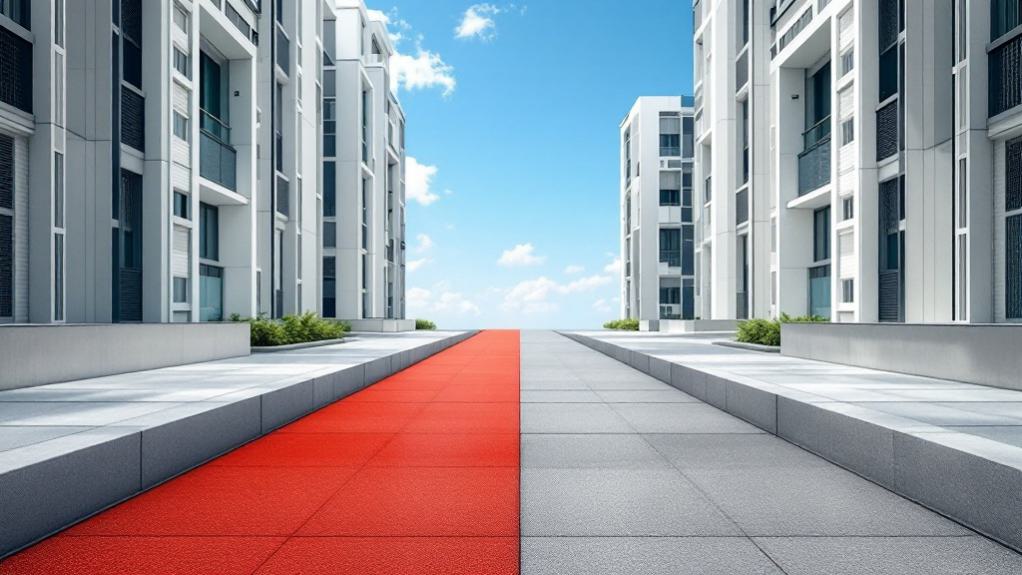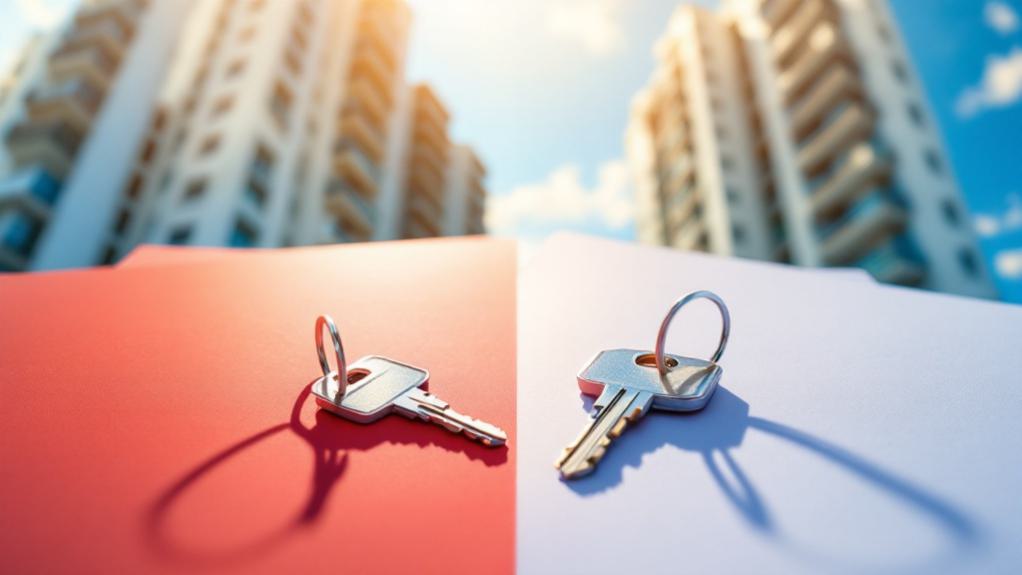HDB loans offer a fixed 2.6% interest rate with 20% down payment (fully CPF-fundable), while bank loans feature variable rates (1.2%-2.2%) requiring 25% down payment (minimum 5% cash). HDB loans permit penalty-free early repayments but have stricter eligibility criteria, including income ceilings and citizenship requirements. Conversely, bank loans allow longer tenures (up to 30 years versus 25 for HDB) and more flexible qualification standards. These fundamental differences impact long-term financial planning for Singapore homeowners.

The decision between a Housing and Development Board (HDB) loan and a bank loan represents a critical financial crossroads for prospective property owners in Singapore’s competitive housing market. At the foundation of this comparison lies the interest rate structure: HDB loans maintain a consistent 2.6% per annum, providing borrowers with predictability and stability throughout the loan tenure, while bank loans typically offer more competitive rates ranging from 1.2% to 2.2%, albeit subject to market fluctuations that can greatly impact long-term financial obligations. Recent US Fed interest rate hikes have caused bank loan interest rates to fluctuate frequently, potentially making them more expensive in the long run.
The capital requirements for property acquisition differ substantially between these two financing options. HDB loans require a 20% down payment, which can be entirely funded through Central Provident Fund (CPF) savings, whereas bank loans necessitate a 25% down payment with at least 5% in cash and the remainder payable through CPF or additional cash reserves. This distinction in down payment requirements directly affects the Loan-to-Value (LTV) ratio, with HDB loans offering up to 80% financing compared to banks’ 75% maximum, consequently influencing monthly repayment amounts and total interest paid over the lifetime of the loan. First-time buyers may qualify for the Enhanced CPF Grant of up to $120,000 for families, which can significantly reduce the initial financial burden.
Eligibility criteria present another notable difference, as HDB loans impose strict income ceilings and citizenship requirements, limiting borrowers to two HDB loans in their lifetime. Bank loans, conversely, operate on more flexible terms, primarily considering applicants’ credit scores and income levels, thereby accommodating a broader spectrum of potential homeowners. Singles and extended families face different income ceiling limits when applying for HDB loans, with S$7,000 for singles and S$21,000 for extended families.
The maximum loan tenure varies as well, with HDB capping at 25 years while banks extend to 30 years for HDB properties, allowing for potentially lower monthly payments despite potentially higher total interest costs.
Early repayment flexibility constitutes a considerable advantage of HDB loans, which permit penalty-free partial or full settlements at any time, whereas banks typically impose penalties during lock-in periods, usually around 1.5% of the prepaid amount.
In addition, while borrowers can refinance from HDB to bank loans to capitalize on potentially lower interest rates, the reverse change is not permitted, highlighting the permanence of certain financing decisions in Singapore’s property market.
Frequently Asked Questions
Can I Switch From an HDB Loan to a Bank Loan?
Yes, shifting from an HDB loan to a bank loan is permissible, provided specific eligibility requirements are met.
Applicants must have paid at least 25% of the property value, maintain a satisfactory credit score, fulfill the bank’s income criteria, and adhere to the TDSR limit of 55% and MSR limit of 30% for HDB flats.
The switch, while offering potentially lower interest rates, is irreversible and subjects borrowers to market-driven fluctuations in interest rates.
What Happens to My Loan if I Sell My Flat?
When a homeowner sells their flat, the outstanding loan balance must be fully repaid from the sale proceeds prior to any disbursement.
The financial institution holding the mortgage—whether HDB or a commercial bank—receives priority payment during the transaction settlement.
Subsequently, all CPF funds utilized for the property purchase, including accrued interest, must be refunded to the owner’s CPF Ordinary Account before any remaining proceeds are released to the seller.
Are There Penalties for Early Repayment?
Early repayment penalties differ considerably between loan types.
HDB loans offer complete flexibility with no penalties for early repayment, allowing borrowers to utilize CPF or cash to reduce their outstanding balance and total interest obligations.
In contrast, bank loans typically impose penalties during lock-in periods, generally 1.5% of the outstanding loan amount, with lock-in terms ranging from one to three years.
Some financial institutions do offer concessions for partial prepayments within specified thresholds to accommodate borrowers’ financial planning.
How Does a Recession Affect Both Loan Types?
During recessions, HDB loan interest rates maintain their fixed 2.6% rate, providing stability amidst economic uncertainty, whereas bank loan rates typically decrease as central banks implement stimulatory measures.
Banking institutions generally tighten lending criteria, requiring larger down payments and scrutinizing income stability more rigorously, while HDB loan eligibility requirements remain consistent.
Property values often stagnate or decline during recessions, potentially affecting loan-to-value ratios for bank loans, whereas HDB maintains its 80% loan-to-value ratio.
Can Foreigners or PRS Apply for HDB Loans?
Foreigners are categorically ineligible for HDB concessionary loans, which are exclusively available to Singapore Citizens.
Permanent Residents likewise cannot access HDB loans, even when purchasing eligible resale flats after their mandatory 3-year PR status requirement.
SC-PR couples may qualify for HDB financing only if the Singapore Citizen is listed as an essential occupier.
Both foreigners and PRs must instead utilize commercial bank loans, subject to a maximum 75% Loan-to-Value ratio and minimum 5% cash downpayment requirement.





